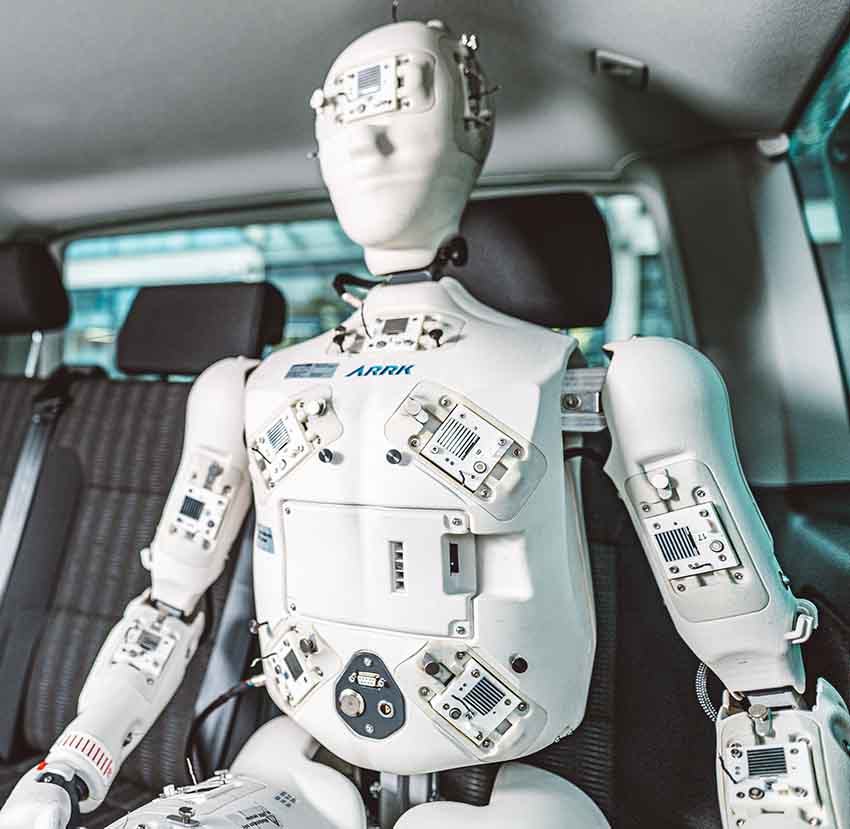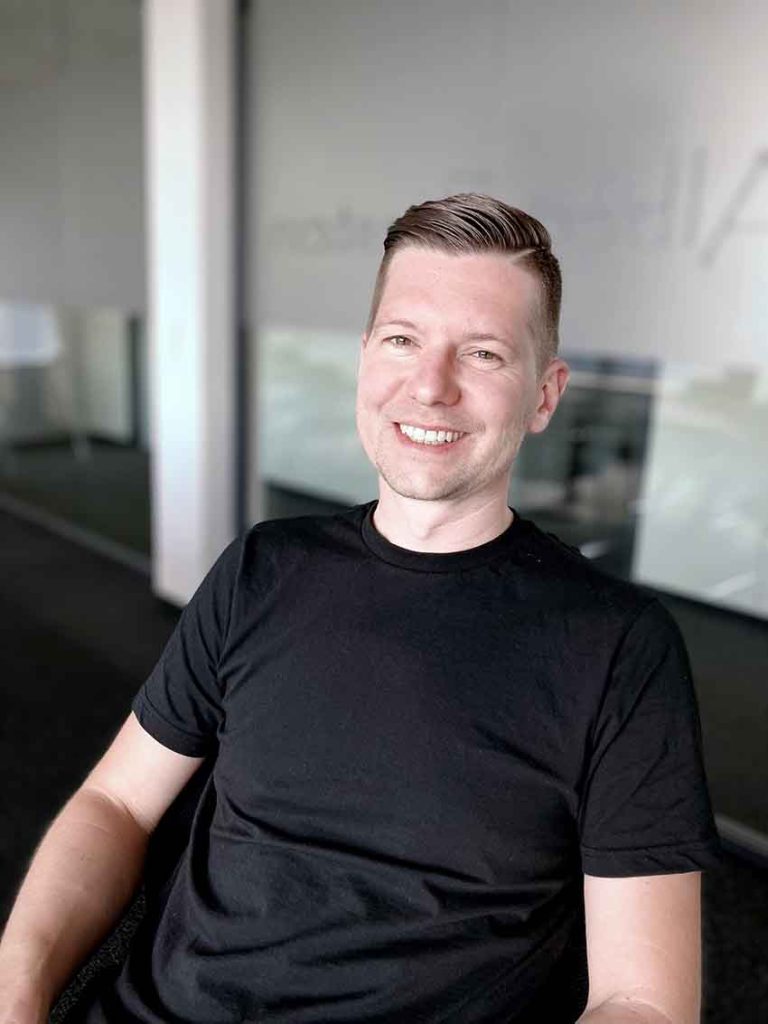Sophisticated thermal management is indispensable in today’s vehicles. It ensures the right temperature required for components, devices and systems to function properly – because overheating or undercooling can impair their performance and service life. But an effective thermal management strategy also ensures the safety of people as well as operating environments. In addition, by reducing energy requirements, efficient cooling and heating systems help to achieve sustainable cost savings.
But there are other points that make thermal management an entertaining and exciting area of work. Daniel Schäfer, Group Manager Thermal Management CAD at ARRK Engineering GmbH reveals what these are in the interview.
Hello Daniel! How long have you been working for ARRK Engineering in the field of thermal management and what are your main areas of focus?
Daniel Schäfer: Of my ten years with ARRK, I have been working permanently in thermal management for seven years. My focus here is clearly on design: Together with my colleagues in Stuttgart and in Cluj, Romania, I mainly look after customers from the Stuttgart region, such as Mercedes and Porsche, but also suppliers and start-ups.
Together with our cooperation partners, however, we offer much more than just design services. We also take on challenging activities in project management and testing from the field of thermal management.

Thermal management is a key topic in vehicle development that is taken into account in the development process right from the start. Which areas does ARRK Engineering focus on?
D.S: One can divide the abstract term “thermal management” into manageable sub-areas: First of all, there is the basic design, i.e. the architecture of the system. This must make it possible to meet all the demands placed on the vehicle – such as a fast lap on the Nordschleife, a leisurely vacation drive across the Alps with the caravan, speedy defrosting of the windows in winter, or charging electric vehicles as quickly as possible.
During all these scenarios, the occupants should naturally feel as comfortable as possible in their vehicle. The key word here is comfort. Who wants to sweat or freeze? Reliably transferring these theoretical requirements from a sheet of paper into practice on the road involves a wide range of disciplines.
From a technical point of view, therefore, no one area stands above the others. However, because of my focus, I personally like to speak for design: Without experienced designers who later transfer all the considerations, simulations and findings from the physical tests into hardware solutions ready for series production, no vehicle will ultimately move reliably and with satisfied customers over the roads and racetracks of this world.
As a complete vehicle solution, thermal management creates an all-round view that other development focuses cannot provide in this way. Is this a special attraction or does the complexity rather cause difficulties in engineering?
D.S: After all, engineers love the challenge of solving complex tasks – so there’s clearly a special appeal. The more often I come into contact with colleagues from other disciplines, the more I realize how much I still don’t know, or rather, how much I can still learn.

What does the project landscape look like at ARRK Engineering in thermal management?
D.S: Since most of our projects are carried out on behalf of customers, they are as varied and diverse as our customers themselves. Some require our support only selectively and for a limited period of time – for example, in the preparation of a supplier’s quotation. In such a case, we then form the interface between supplier and OEM.
At the other extreme are start-ups that want to get as many trades as possible from a single source. In this case, we enter the projects at a very early stage and offer, among other things, project management, design, simulation, control, testing, construction and support in the procurement of components. In addition, we work internally on automation and methodology topics as well as on our own products, such as our in-house software Theseus FE.
To back up this topic with some figures: With our group in Stuttgart and the associated colleagues in Cluj alone, i.e. a total of 20 people, we were active in more than 20 projects, four PDM systems and two CAD systems for more than ten different customers in this fiscal year. This often involves international teamwork. This is always very appealing and brings together very different cultures.
What challenges do electric vehicles in particular pose in terms of thermal management? What are the differences compared to combustion engines?
D.S: In the thermal management of electric vehicles, engineers face the challenge of effectively controlling the temperatures of multiple components such as the battery, motor and charger.
In internal combustion engines, excess heat is simply dissipated through the cooling circuit without much degradation of performance. Moreover, this excess heat is available “free of charge,” so to speak, for tempering the interior.

In contrast, the battery is the heart of the electric vehicle and its performance and service life depend to a large extent on its temperature. Therefore, intelligent thermal management that can respond to an increased number of operating conditions and their requirements is essential here to protect the battery and other components, create a comfortable climate in the interior, and maximize the vehicle’s range and performance.
In short, the more diverse requirements in electromobility bring more complexity and thus more possible solutions and challenges.
Automotive engineering, mechanical engineering, electrical engineering… where should my background ideally be if I want to pursue an engineering job in thermal management.
It all depends on the area of thermal management in which you would like to start. Anyone who has now discovered an interest in thermal management should simply contact us and we will talk about possible areas of application. Be it in the segment of automotive engineering, process engineering, computer science, physics or electrical engineering… whoever has already dealt with the topic in advance of an application will certainly already have an idea of how he or she could contribute his or her own knowledge and experience. In any case, we are looking forward to reinforcements!

